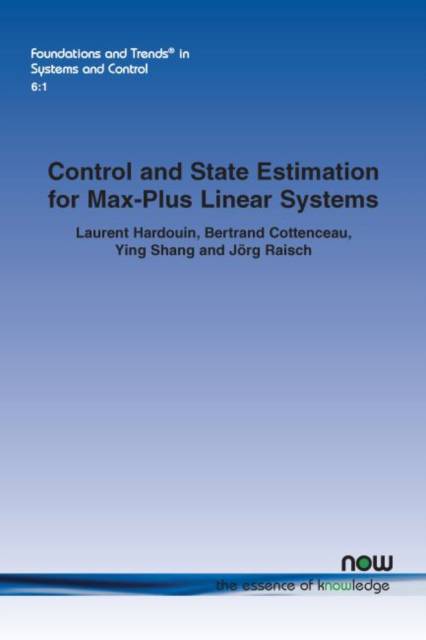
- Afhalen na 1 uur in een winkel met voorraad
- Gratis thuislevering in België vanaf € 30
- Ruim aanbod met 7 miljoen producten
- Afhalen na 1 uur in een winkel met voorraad
- Gratis thuislevering in België vanaf € 30
- Ruim aanbod met 7 miljoen producten
Zoeken
Control and State Estimation for Max-Plus Linear Systems
Laurent Hardouin, Bertrand Cottenceau, Ying Shang, Jörg Raisch
€ 99,45
+ 198 punten
Omschrijving
Max-plus linear systems theory was inspired by and originated from classical linear systems theory more than three decades ago, with the purpose of dealing with nonlinear synchronization and delay phenomena in timed discrete event systems in a linear manner. Timed discrete event systems describe many problems in diverse areas such as manufacturing, communication, or transportation networks. This monograph provides a thorough survey of current research work in max-plus linear systems. It summarizes the main mathematical concepts required for a theory of max-plus linear systems, including idempotent semirings, residuation theory, fixed point equations in the max-plus algebra, formal power series, and timed-event graphs. The authors also review some recent major achievements in control and state estimation of max-plus linear systems. These include max-plus observer design, max-plus model matching by output or state feedback and observer-based control synthesis. Control and State Estimation for Max-Plus Linear Systems offers students, practitioners, and researchers an accessible and comprehensive overview of the most important recent work in max-plus Linear Systems.
Specificaties
Betrokkenen
- Auteur(s):
- Uitgeverij:
Inhoud
- Aantal bladzijden:
- 134
- Taal:
- Engels
- Reeks:
- Reeksnummer:
- nr. 15
Eigenschappen
- Productcode (EAN):
- 9781680835441
- Verschijningsdatum:
- 24/12/2018
- Uitvoering:
- Paperback
- Formaat:
- Trade paperback (VS)
- Afmetingen:
- 156 mm x 234 mm
- Gewicht:
- 199 g

Alleen bij Standaard Boekhandel
+ 198 punten op je klantenkaart van Standaard Boekhandel
Beoordelingen
We publiceren alleen reviews die voldoen aan de voorwaarden voor reviews. Bekijk onze voorwaarden voor reviews.











